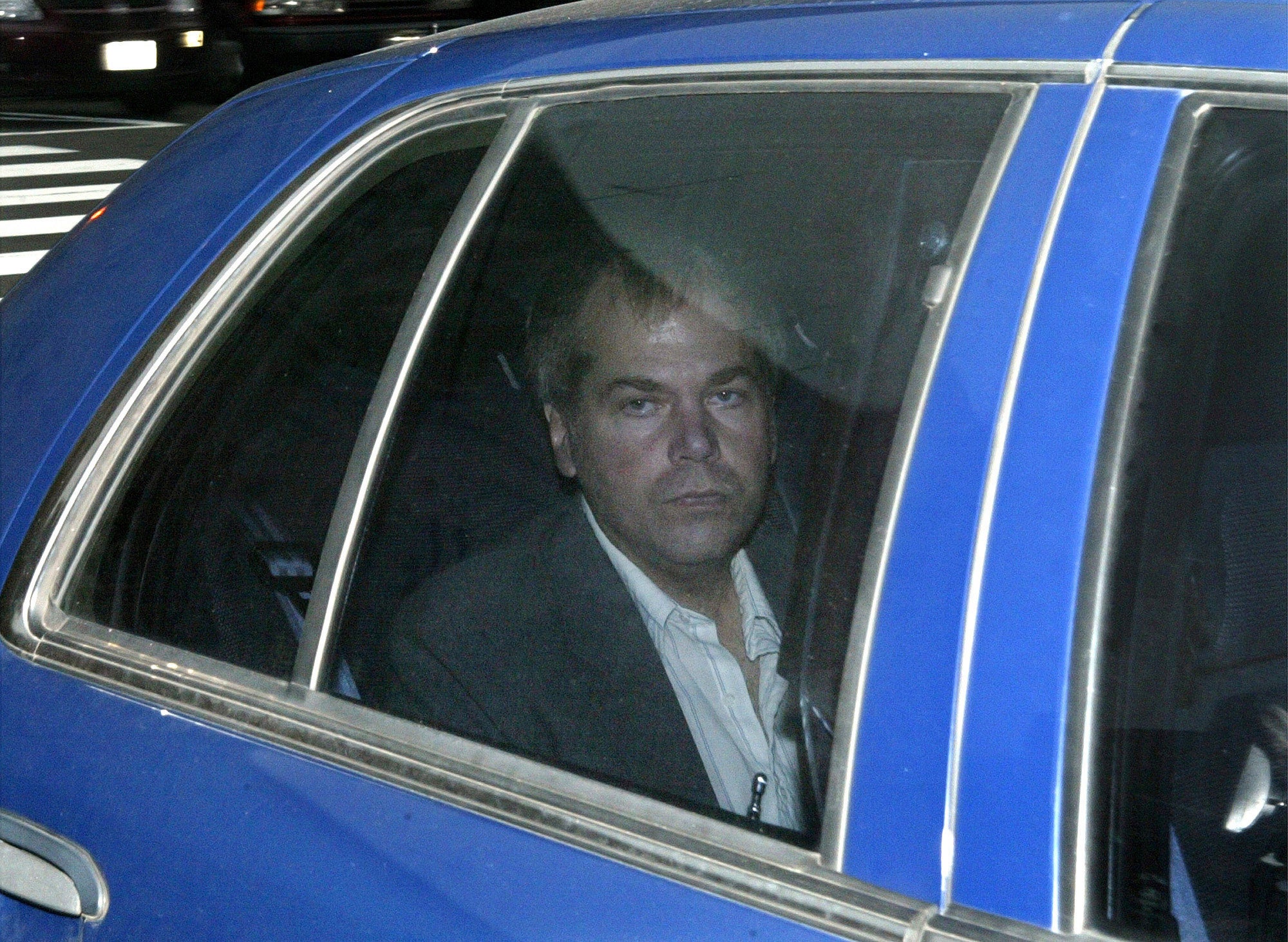Hearing set to discuss unconditional release for Hinckley
A court hearing has been scheduled regarding whether the man who tried to assassinate President Ronald Reagan can live without restrictions in the home he shares with his mother and brother in Virginia

Your support helps us to tell the story
From reproductive rights to climate change to Big Tech, The Independent is on the ground when the story is developing. Whether it's investigating the financials of Elon Musk's pro-Trump PAC or producing our latest documentary, 'The A Word', which shines a light on the American women fighting for reproductive rights, we know how important it is to parse out the facts from the messaging.
At such a critical moment in US history, we need reporters on the ground. Your donation allows us to keep sending journalists to speak to both sides of the story.
The Independent is trusted by Americans across the entire political spectrum. And unlike many other quality news outlets, we choose not to lock Americans out of our reporting and analysis with paywalls. We believe quality journalism should be available to everyone, paid for by those who can afford it.
Your support makes all the difference.A court hearing has been set for Aug. 30 regarding whether the man who tried to assassinate President Ronald Reagan can live without restrictions in the home he shares with his mother and brother in a gated community in Virginia
U.S. District Judge Paul L. Friedman set the late summer date during a teleconference Thursday that included John Hinckley Jr.'s attorney and a federal prosecutor.
Barry Levine, Hinckley’s lawyer, has been arguing for Hinckley’s unconditional release and points to a recent risk assessment that says Hinckley is stable and unlikely to reoffend.
The exact details of what unconditional release would mean for Hinckley were not discussed during Thursday's teleconference. But the U.S. government opposes unconditional release, according to a brief filed with the court in early May. The government is also having its own expert examine Hinckley to determine “whether or not he would pose a danger to himself or others.”
Hinckley, 66, left a Washington psychiatric hospital in 2016 and has been living under increasingly fewer restrictions in a house that sits along a golf course in Williamsburg.
For instance, the judge ruled in October that Hinckley can publicly display his writings, artwork and music under his own name. Hinckley also is allowed to move out of his mother's house and live within 75 miles of Williamsburg, if doctors approve.
But several conditions remain in place. For instance, Hinckley cannot possess a gun or contact Jodie Foster the actress he was trying to impress when he shot and wounded Reagan in 1981.
Hinckley also cannot knowingly travel to areas where there is someone who is protected by the U.S. Secret Service.
Hinckley was 25 when he shot the 40th U.S. president outside a Washington hotel. The shooting also paralyzed press secretary James Brady and injured two others.
Hinckley was suffering from acute psychosis and was obsessed with Foster. When jurors found him not guilty by reason of insanity, they said he needed treatment, not a lifetime in confinement.
Last summer, a new risk assessment was conducted and found Hinckley to be at low risk for another psychotic episode. It also suggested “a low likelihood that he will reoffend with a violent crime over the short and long term.”
The assessment also quotes mental health professionals who indicated support for his unconditional release. Hinckley is quoted as saying that it would free him from driving to Washington for in-person meetings with the city’s Department of Behavioral Health.
Hinckley said he would have more free time if he no longer has to check in by telephone and complete daily activity logs.
″(N)ot a whole lot would change,” Hinckley is quoted as saying.
He plans to continue to live in the Williamsburg area, attend group therapy sessions and take his current psychiatric medications, the assessment stated.
Hinckley's attorneys wrote in an April court filing that his mother is in declining health. And they hoped an unconditional release order “might be entered while Mrs. Hinckley can appreciate it.”
Levine, Hinckley’s attorney, raised the issue again during Thursday's call with the judge.
“Mr. Hinckley's mother is in something of a rapid decline,” Levine told the judge. “It's been my hope that this would have come to a conclusion while she could enjoy the fruits of it, but maybe not. Maybe not.”